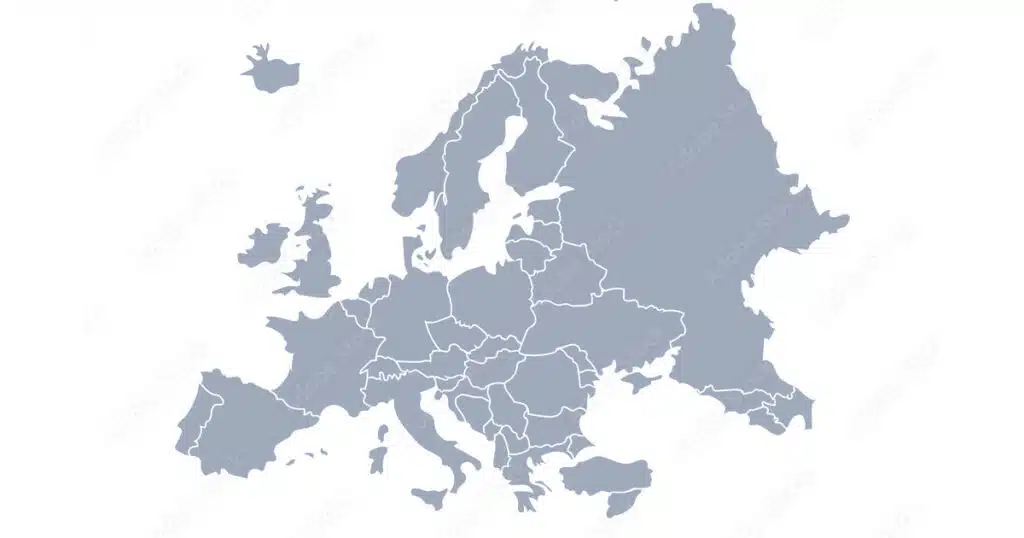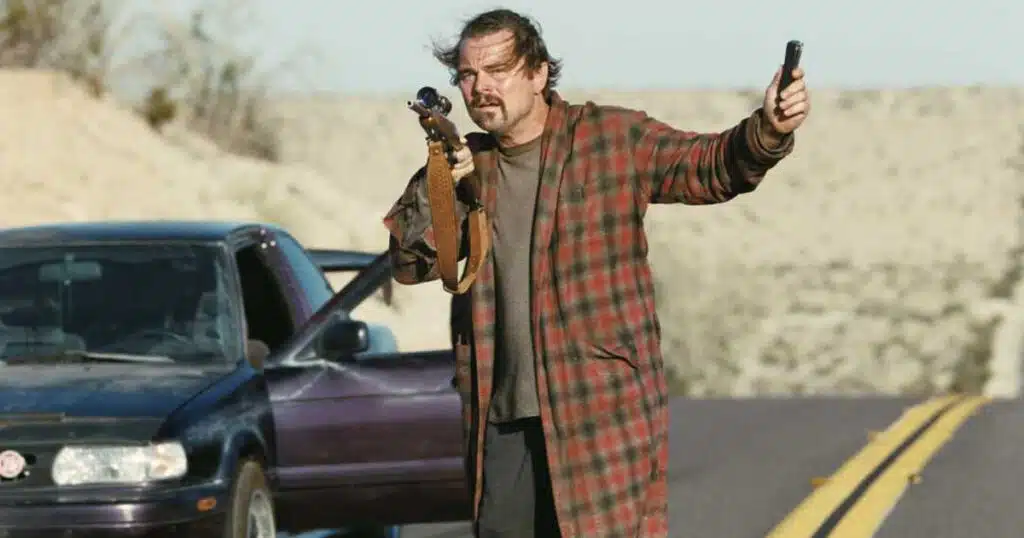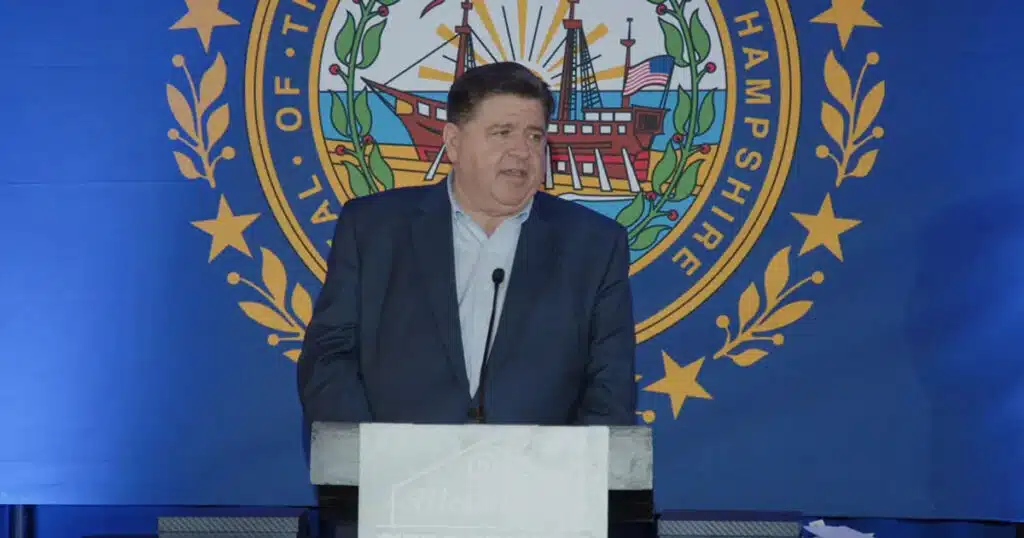
The Next U.S. President Will Find a Europe Much Changed From Four Years Ago
If Donald Trump wins the election on Tuesday, he will encounter a Europe far different from the one he knew during his first term both in terms of personnel and policy.
A second Trump term could very well be a baptism by fire for new NATO Secretary General Mark Rutte. After a decade of leadership by Jens Stoltenberg, whom some regarded as a Trump whisperer, NATO has turned to a leader known for being a quiet builder of consensus.
The G7 has also seen significant turnover. Think back to the infamous photo from the 2018 summit, wherein German Chancellor Angela Merkel is leaning on a table toward a seated and smirking Donald Trump. Of the five world leaders pictured, only French President Emmanuel Macron remains.
Chancellor Merkel is long gone; so are former British Prime Minister Theresa May and Japanese Prime Minister Shinzo Abe, who was tragically assassinated in 2022. And today’s weaker Macron is a stark contrast to the Macron of Trump’s first term, who commanded the French political scene.
The United Kingdom has a new Labour government and a different monarch on the throne. In Germany, Social Democratic Chancellor Olaf Scholz’s traffic light coalition looks to be on its last legs. Friedrich Merz, the leader of the Christian Democratic Union and very likely next chancellor, is a conservative who has expressed his desire to increase German defense spending, an openness to reversing Merkel’s shuttering of Germany’s nuclear power plants, and a promise to halt mass migration.
Merz and German conservatives have sought to rebuild ties with U.S. conservatives, with CDU/CSU even sending a delegation to the Republican National Convention. As if to underscore how different he would govern if elected, standing next to Merkel, Merz recently stated “history doesn’t repeat itself.”
Indeed, with the notable exception of the UK, in most other corners of Europe, conservatives have been resurgent over the past four years. Conservative governments are now in office in the Czech Republic, Finland, and Sweden. This trend is perhaps most pronounced in Italy, where the two-year-old government of conservative Prime Minister Giorgia Meloni is arguably the most stable in Europe. Her influence in Europe expanded after a strong showing for the conservative European Conservatives and Reformists Group in June European Union parliamentary elections. Meloni is a conservative who understands the critical importance of the current moment as it relates to the Russian war against Ukraine (and the West more broadly).
She could become a key interlocutor if President Trump returns. This is due not only to her expanded influence in Europe or her government’s presumed longevity, but because of her conservative views and status coming into office as a political outsider. Relations between a second Trump Administration and European allies could run more smoothly if the U.S. president finds an interlocutor whom he feels comfortable with.
The changeover in Poland’s government away from Law and Justice, with whom Trump was close, means that while U.S.-Polish relations will remain strong; Poland under Civic Platform is unlikely to have the same closeness it did with the Trump Administration during his first term.
Likewise, while a Trump White House will undoubtedly remain close with Hungarian Prime Minister Orban, his poor relations to put it mildly with fellow European leaders limits the scope of this partnership. Italy, however, represents an intriguing possibility for closer relations with the U.S. under a Trump presidency.
While President Macron, with whom Trump seemingly had a good working relationship with the first time around could possibly serve the role of key interlocutor, Meloni for reasons of policy may be a more natural European partner for Trump.
In addition to a different set of faces around the conference table, President Trump returned to office (or a potential President Harris for that matter) will find a changed European policy landscape, particularly as it relates to defense and migration.
On defense, the shock of Russia’s full-scale invasion of Ukraine and consistent brutality has forced Europe to become more serious on defense. NATO as an alliance is in a much different place on defense spending than in 2017 or even 2021. Europeans are investing more in defense, in particular buying large amounts of U.S. built capabilities. Today, two-thirds of NATO member states spend 2% of GDP on defense with many moving well beyond that benchmark.
On migration, the conversation in Europe is vastly different than four years ago. The downstream impacts of unfettered mass migration are now abundantly clear to voters. As in the U.S., migration is a key animating political issue in many European nations including the Netherlands, where the success of the Party for Freedom on the back of the migration issue has shifted the new government rightward.
Fixing the chaos left behind by years of Biden’s open border policies will be priority number one for a second Trump term. In Europe, even in places like France and Germany, there is far more alignment with Donald Trump on this issue than there is distance, even if some politicians would be loath to admit it.
Similarly, Europe has become more hawkish on the issue of China since Trump left office. Likewise, on the future of the green transformation, many European governments are now seeing yellow. There is newfound caution.
While most continue to officially support the adoption of renewables and give lip service to the goal of striving towards climate targets, in private conservations, and in policy decisions, it has become clear that many nations are reconsidering their enthusiasm for a green transition in light of energy security concerns.
While we do not yet know the outcome of the imminent U.S. election, the next president will find a European landscape much changed over the past four years. The conservative shift in many European capitals — and the political shift rightward on several key policy issues in voters in Europe — is an intriguing scene change to consider as we approach November 5th.
This changed reality on the ground will have impacts on the 47th President but would seem to have an outsized impact if Donald Trump is once again returned to office.
Daniel Kochis is a Senior Fellow in the Center on Europe and Eurasia at Hudson Institute.
This article was originally published by RealClearWorld and made available via RealClearWire.



